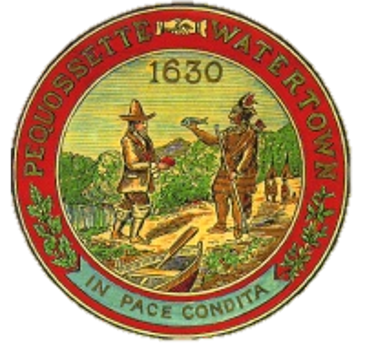Tree Canopy and Open Space
Benefits of Trees
In September 2023 the Town and Trees for Watertown held a symposium on trees and climate change in Watertown. Check out the slides and learn more:
Climate change is here. Can trees make a difference? - Laurel Schwab, Senior Environmental Planner & Conservation Agent
Materials from the 2021 symposium:
The Role of Trees in Climate Change - Laurel Schwab, Senior Environmental Planner & Conservation Agent
Urban Forest Futures: The Cambridge Urban Forest Master Plan, Stephanie Hsia, Reed Hilderbrand LLC
Watertown Urban and Community Forestry - Greg Mosman, Tree Warden
The Science of Planting Trees - Libby Shaw, Trees for Watertown
Looking Back, Looking Forward - Teens for Trees

Check out this crowd-sourced map that marks beautiful or personally-resonating trees around Watertown!
The City of Watertown Planted 162 trees during the Fall 2022 planting season! The map below provides details about location and species planted.
Regenerative Landscaping
Native Plants and Pollinators
Native plants promote biodiversity, helping to keep our local ecosystems intact and thriving. They also are adapted to our local climate and weather, and therefore require less watering. Many native species are also excellent for pollinators, meaning they support a healthy bee population, which is in danger of decline.
In a signal of support for continued and expanded efforts to improve pollinator habitat in Watertown, City Manager George Proakis signed the Mayor's Monarch Pledge in spring 2023.
Regenerative Landscaping
School and Community Gardens
One important way that we can promote nature-based landscaping in Watertown is by using school and community gardens as demonstration sites. These gardens can be spaces to learn about native plants, foster a sense of stewardship, and build community - all while enjoying the outdoors!
Our Plan has set targets to increase the amount of school and community garden space in Watertown to 24,000 square feet by 2030 and 30,000 square feet by 2050.
Get Involved with Community Gardens in Watertown!
Managing Stormwater
What is Stormwater?
Stormwater comes from rainfall and snow melt -- they sound so pure, don't they? But in a city like Watertown, not enough stormwater soaks into the ground, which would filter and clean the water. Instead, most of it flows across roofs, streets, and parking lots, and all along the way it washes litter, spills, dirt, and chemicals into our storm drains, which dump it straight into our ponds and the Charles River -- unfiltered.
In addition to challenges with water quality, with projected climate change, the volume of water that our infrastructure needs to handle will be strained. Watertown already maintains an extensive system for managing stormwater that includes:
- 3,200 catch basins
- 55 miles of drainage pipe
- 30 stormwater outfalls
Water
What Is Green Infrastructure?
Green infrastructure is an approach to manage stormwater that relies on the natural way that water is filtered and absorbed by vegetation and soils. In an urban environment like Watertown, green infrastructure has many benefits including decreasing pollution to our waterways such as the Charles River, improving air quality, reducing urban heat, and adding beautiful green spaces to our streets.
To learn more, explore the map below of existing green infrastructure and read about the different types of green infrastructure you can see around Watertown!
The City has conducted an assessment to map areas of our community experiencing the urban heat island effect . As part of the Equitable Community Greening program, this assessment will help the City prioritize green infrastructure projects that will lower energy costs, minimize public health risks from extreme heat, and make our neighborhoods more livable.

Water
Everyone can help manage stormwater
Hear from Watertown DPW on the many ways residents can be involved with maintaining water quality. Video produced by the Mystic River Watershed Association.

Stormwater Advisory Committee
The Stormwater Advisory Committee acts as an advisory body to the Superintendent of Public Works. The Committee will:
- Develop educational programs and materials to increase public awareness of stormwater management.
- Identify and advocate for stormwater funding through grants and other sources.
- Review and make recommendations on stormwater ordinances and related regulations.
- Perform any other tasks relevant to assisting the Superintendent of Public Works with the implementation of best practices for stormwater management.
Normal meeting are held from 4:00 to 6:00 p.m. on the third Thursday of every month at the Department of Public Works Conference Room, 124 Orchard Street, Watertown. The public is welcome and encouraged to attend meetings.
What Can You Do
Add Your Own Green Infrastructure
Everyone can be a part of building a literally greener Watertown by investing in the green space that is right around their home. Planting in a bare place or taking care of the trees and other plants around you can improve your surroundings and that of your neighbors.




